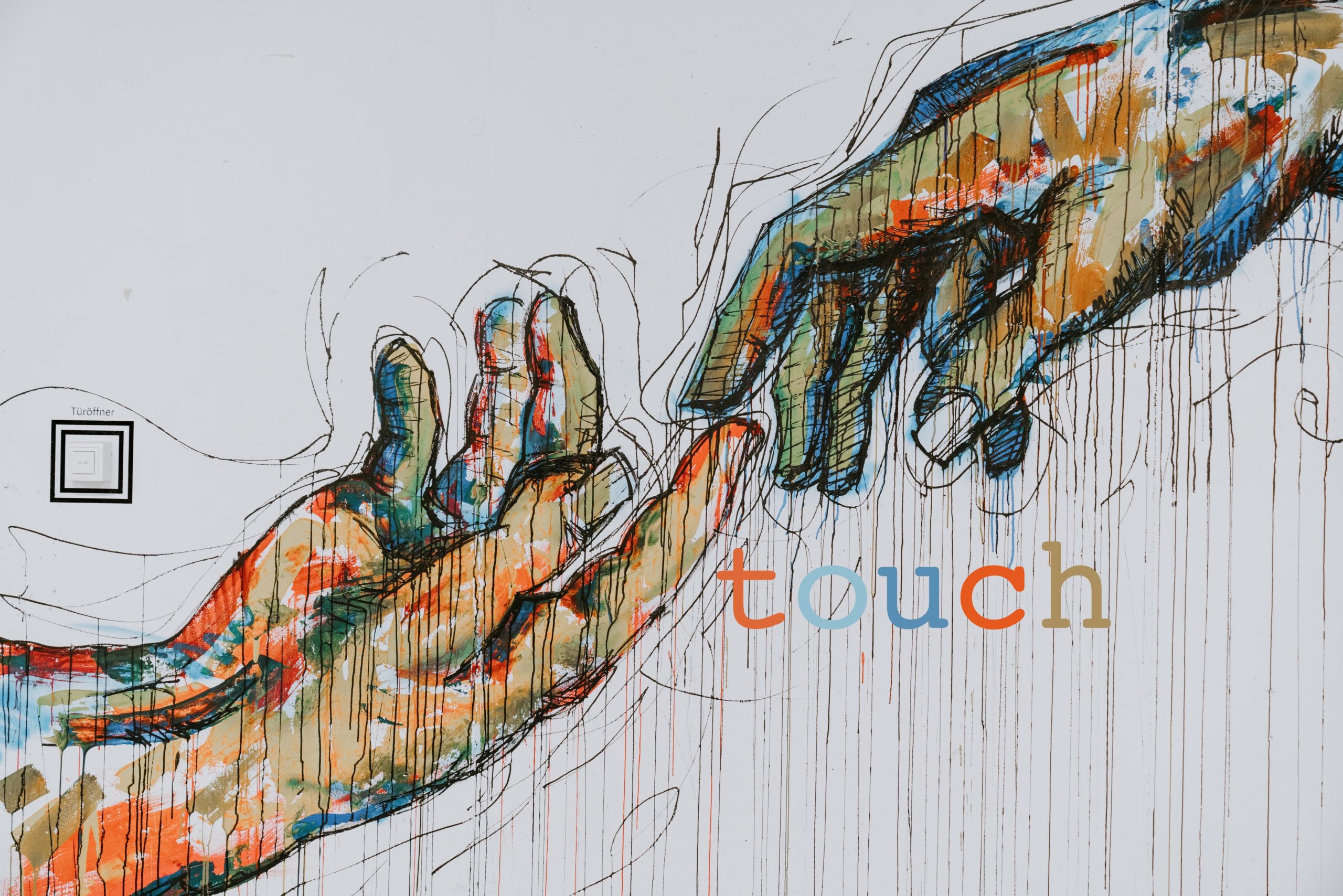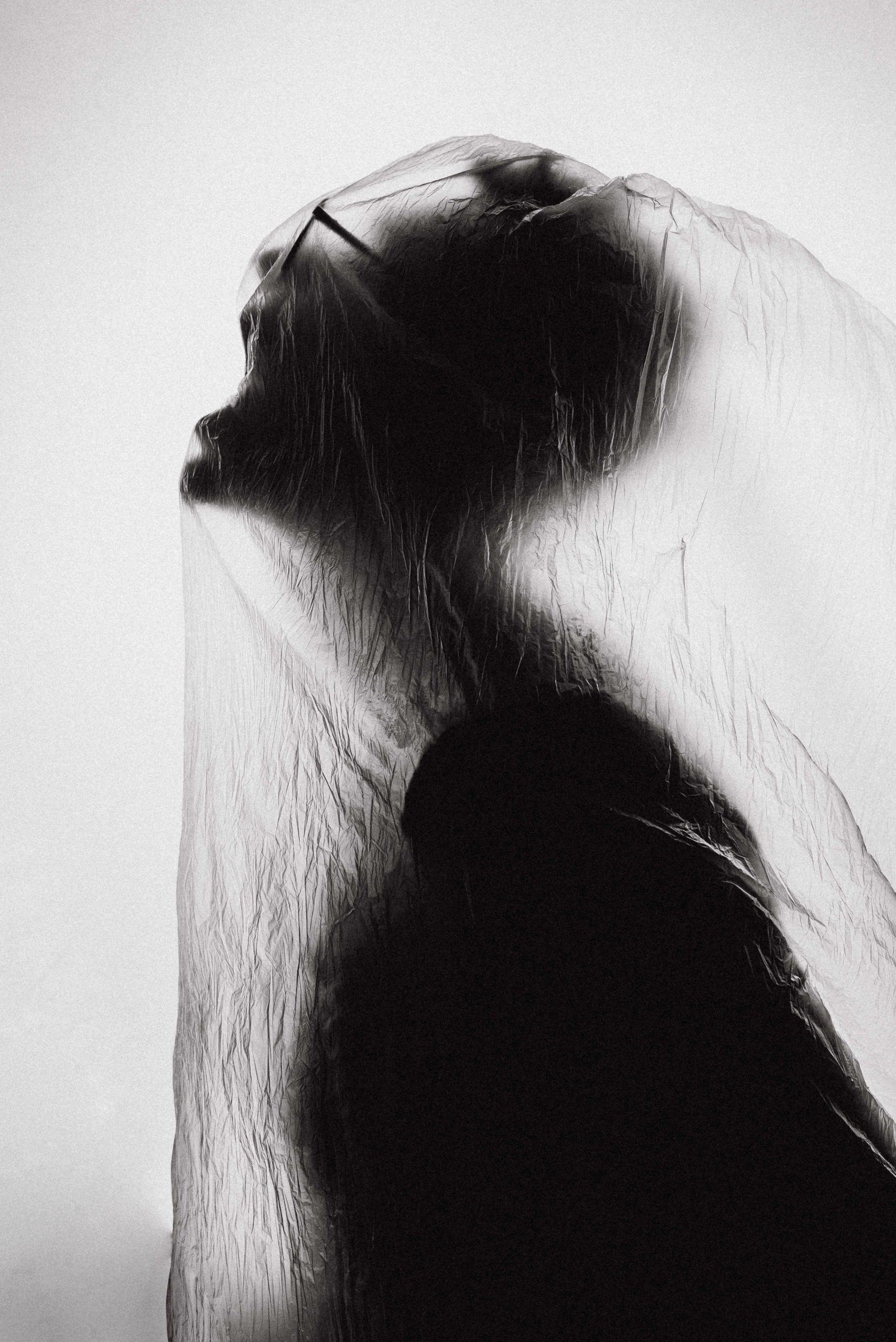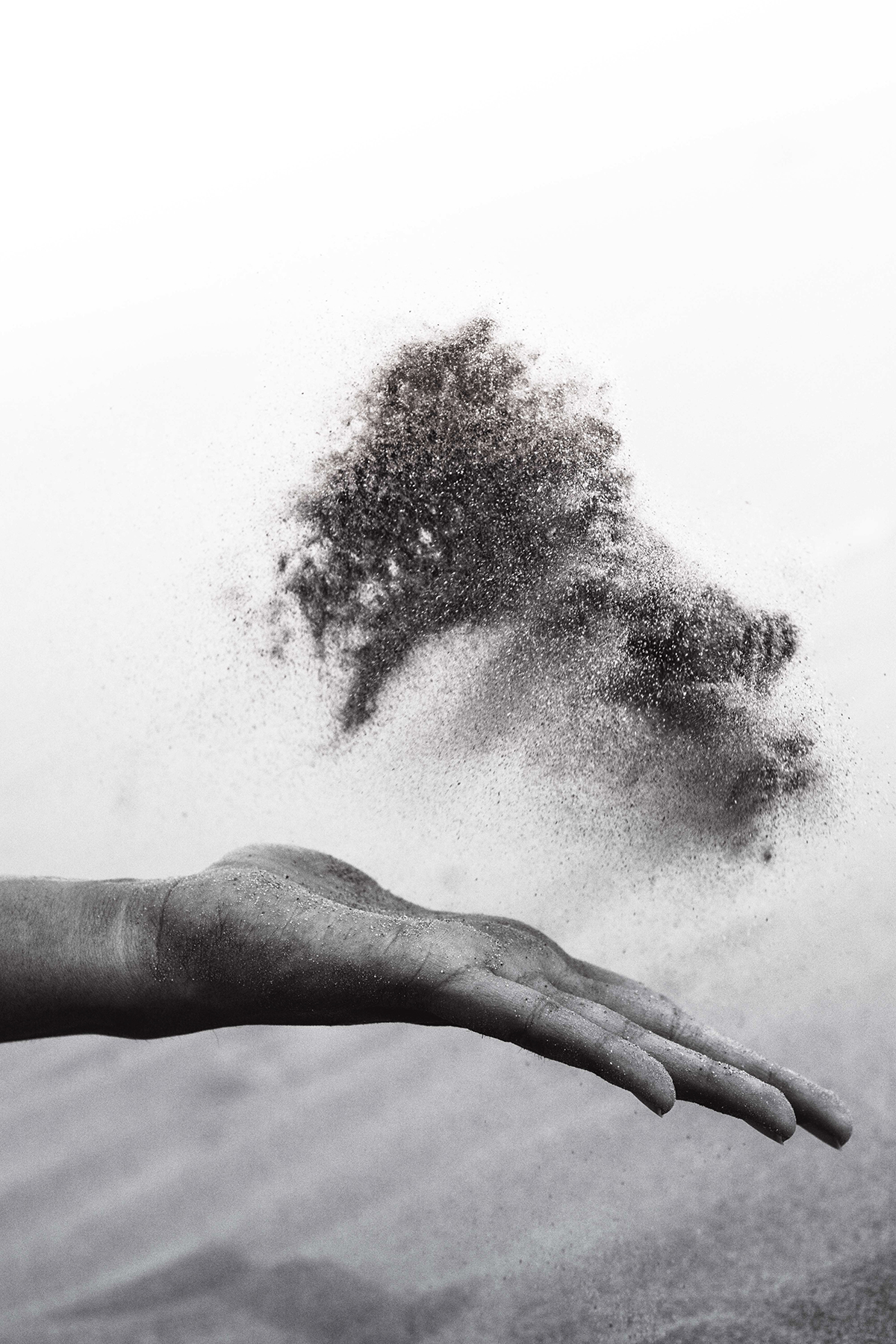

It’s so weird that everything can change in what feels like a second but really it’s all an imperfect culmination of coincidences. Like a viral jump from animal to human and neglectful world leaders. Our understanding of “essential” is changing. But if you are reading this you too turn to art when you’re in pain or in love or wanting to feel at all.
This month we have a dash of flash-fiction and a single poem.
For our artists TALK project I interviewed the visionary poet/teacher/activist Kai Coggin.
Every Wednesday night Kai hosts a virtual open-mic night with poets from all over the world. You can submit your work and learn more about Wednesday Night Poetry here.
And, you can read my conversation with Kai here. She is a lightning bolt so I’ll borrow her words:
“Right now we are all seeing just how intensely we are connected. It’s bringing a magnification to how much we unknowingly touch each other. Our cells are on every passing door knob, on every seat, on every subway, plane. We all touch but now we are being shown how much touch means.”
So, for next month’s theme:

Tell us what you are touching and what is touching you and what you miss in 650 words or less.
Stay strong, stay safe, stay home.
Love,
amanda lezra
Editor-in-Chief
It’s so weird that everything can change in what feels like a second but really it’s all an imperfect culmination of coincidences. Like a viral jump from animal to human and neglectful world leaders. Our understanding of “essential” is changing. But if you are reading this you too turn to art when you’re in pain or in love or wanting to feel at all.
This month we have a dash of flash-fiction and a single poem.
For our artists TALK project I interviewed the visionary poet/teacher/activist Kai Coggin.
Every Wednesday night Kai hosts a virtual open-mic night with poets from all over the world. You can submit your work and learn more about Wednesday Night Poetry here.
And, you can read my conversation with Kai here. She is a lightning bolt so I’ll borrow her words:
“Right now we are all seeing just how intensely we are connected. It’s bringing a magnification to how much we unknowingly touch each other. Our cells are on every passing door knob, on every seat, on every subway, plane. We all touch but now we are being shown how much touch means.”
So, for next month’s theme:

Tell us what you are touching and what is touching you and what you miss in 650 words or less.
Stay strong, stay safe, stay home.
Love,
amanda lezra
Editor-in-Chief
Listening In
I turned into the parking lot of the 7-11 on Lincoln Boulevard. I’d been living in Venice Beach for a month and had made a lot of progress on my new novel but had not made any headway on new friends. I knew how to get dates online, but I had no idea how anyone made new friends. Especially anyone past fifty.
When I first arrived, I tried coffee shops, but no one talked in Venice coffee shops. They just worked away on laptops. I kept going to coffee shops to write by myself in the company of the silent. But at night I hit the boardwalk where I eavesdropped on conversations just to hear people talk.
I wore my ear pods and nodded my head, so it looked like I was listening to music and not being creepy. If someone said something interesting, I pretended that I was part of the exchange, part of their story, and I added my words in my head. I imagined that the nice people were my friends.
I’d spent the earlier part of the evening on my favorite benches along the boardwalk. My best listen that night was the woman who told her date that to be genuinely from Venice one had to stay AWOL. Always West Of Lincoln. I’d been AWOL without knowing it.
There were three homeless guys sitting on the pavement in front of the 7-eleven as I pulled into a parking spot. My plan was to get snacks and sit in my car in the parking lot and eavesdrop on people entered and left the store. I hit the jackpot with a spot in front of the Red Box. I liked listening in on conversations about what movie to rent.
I shut the engine and this guy, a small guy in his twenties, tapped on my window. I hadn’t noticed him coming over. He almost fell onto my window. He was clearly wasted. I got out of my car slowly, backing him away with the door.
He asked me for a cigarette. I told him I didn’t smoke. That made him angry. Maybe he thought I was lying.
I knew him. Or kids like him. He looked like one of my students from when I taught at community college back before I decided to leave the classroom and Boston and head west. They never got older. But I did. I looked at the kid and wondered if I wanted to be a teacher again. I did not. He was twisted and irritated and that made him dangerous. Besides, I had no advice for him.
I locked the car and headed inside without saying anything. He started to follow me into the store. Inside, I grabbed some cashews and a coffee. When I went to pay, the kid was mouthing off to the young woman behind the counter. Funny, she looked his age and she didn’t.
I felt bad for her. I didn’t need to. She kicked him out of the store with ease and grace. As I was paying, she told me that he was looking to either get the shit kicked out of him or get shot. Or maybe, she added, he just wanted to get arrested so that he’d have a nice place to sleep for the night.
I was too sad to stay and listen to the couple in front of the Red Box trying to pick out a romantic comedy. Who even had a DVD player anymore?
I gave the cashews to one of the homeless guys and got in my car and drove home.
Elan Barnehama’s debut novel, “Finding Bluefield” explores what happens when society’s invisible become visible. His writing has appeared in Boston Accent, Drunk Monkeys, Jewish Fiction, Runing Wild Books, NY Journal of Books, HuffPost, Public Radio, and elsewhere. Elan has been a presenter at the BostonBookFest, an editor at Forth Magazine, and a Writer-In-Residence at Wildacres Retreat, and the Fairhope Center For The Writing Arts. “Listening In” is excerpted from his latest novel-in-progress, “Undoing Things.” More at elanbarnehama.com or @elanbarnehama

burbujas
cristian newman
Listening In
I turned into the parking lot of the 7-11 on Lincoln Boulevard. I’d been living in Venice Beach for a month and had made a lot of progress on my new novel but had not made any headway on new friends. I knew how to get dates online, but I had no idea how anyone made new friends. Especially anyone past fifty.
When I first arrived, I tried coffee shops, but no one talked in Venice coffee shops. They just worked away on laptops. I kept going to coffee shops to write by myself in the company of the silent. But at night I hit the boardwalk where I eavesdropped on conversations just to hear people talk.
I wore my ear pods and nodded my head, so it looked like I was listening to music and not being creepy. If someone said something interesting, I pretended that I was part of the exchange, part of their story, and I added my words in my head. I imagined that the nice people were my friends.
I’d spent the earlier part of the evening on my favorite benches along the boardwalk. My best listen that night was the woman who told her date that to be genuinely from Venice one had to stay AWOL. Always West Of Lincoln. I’d been AWOL without knowing it.
There were three homeless guys sitting on the pavement in front of the 7-eleven as I pulled into a parking spot. My plan was to get snacks and sit in my car in the parking lot and eavesdrop on people entered and left the store. I hit the jackpot with a spot in front of the Red Box. I liked listening in on conversations about what movie to rent.
I shut the engine and this guy, a small guy in his twenties, tapped on my window. I hadn’t noticed him coming over. He almost fell onto my window. He was clearly wasted. I got out of my car slowly, backing him away with the door.
He asked me for a cigarette. I told him I didn’t smoke. That made him angry. Maybe he thought I was lying.
I knew him. Or kids like him. He looked like one of my students from when I taught at community college back before I decided to leave the classroom and Boston and head west. They never got older. But I did. I looked at the kid and wondered if I wanted to be a teacher again. I did not. He was twisted and irritated and that made him dangerous. Besides, I had no advice for him.
I locked the car and headed inside without saying anything. He started to follow me into the store. Inside, I grabbed some cashews and a coffee. When I went to pay, the kid was mouthing off to the young woman behind the counter. Funny, she looked his age and she didn’t.
I felt bad for her. I didn’t need to. She kicked him out of the store with ease and grace. As I was paying, she told me that he was looking to either get the shit kicked out of him or get shot. Or maybe, she added, he just wanted to get arrested so that he’d have a nice place to sleep for the night.
I was too sad to stay and listen to the couple in front of the Red Box trying to pick out a romantic comedy. Who even had a DVD player anymore?
I gave the cashews to one of the homeless guys and got in my car and drove home.
Elan Barnehama’s debut novel, “Finding Bluefield ” explores what happens when society’s invisible become visible. His writing has appeared in Boston Accent, Drunk Monkeys, Jewish Fiction, Runing Wild Books, NY Journal of Books, HuffPost, Public Radio, and elsewhere. Elan has been a presenter at the BostonBookFest, an editor at Forth Magazine, and a Writer-In-Residence at Wildacres Retreat, and the Fairhope Center For The Writing Arts. “Listening In” is excerpted from his latest novel-in-progress, “Undoing Things.” More at elanbarnehama.com or @elanbarnehama

burbujas
cristian newman
Blackrock
(after Lost Mountain, by Erik Reece)
Our children play
among dust.
Black rock fallen
from passing trucks.
Pleasure to see a mountain
towering over the moon.
Blistering throats
announce coughs like
bullhorns. Blackwashed lungs
wheeze spores as bituminous
haze.
Too much rest
has turned them
sour. Poverty
a solitary dove. A creature
to consider their filtration
and pallid wandering.
Soon, the children will come in,
sinking in their clothes of dust.
“It’s not choosing to wear different clothes, is it?
No one said this would happen. The company,
they mix greed with freedom. Merge them
into their cloud of ill-omens.
Pillars of black rock took our pride.
It’s true I took some for myself,
to see if it had any pride to give me.
To see if our children play right.”
Seamus Morrison is a Junior in the College of Creative Studies at the University of California in Santa Barbara, where he double majors in Writing and Literature and Spanish. His work appears in The Catalyst, UCSB’s literary arts magazine, and the Ojai Quarterly. He lives in Ojai with his family and orange tabby, Dannyboy.

kunj parekh
Blackrock
(after Lost Mountain, by Erik Reece)
Our children play
among dust.
Black rock fallen
from passing trucks.
Pleasure to see a mountain
towering over the moon.
Blistering throats
announce coughs like
bullhorns. Blackwashed lungs
wheeze spores as bituminous
haze.
Too much rest
has turned them
sour. Poverty
a solitary dove. A creature
to consider their filtration
and pallid wandering.
Soon, the children will come in,
sinking in their clothes of dust.
“It’s not choosing to wear different clothes, is it?
No one said this would happen. The company,
they mix greed with freedom. Merge them
into their cloud of ill-omens.
Pillars of black rock took our pride.
It’s true I took some for myself,
to see if it had any pride to give me.
To see if our children play right.”
Seamus Morrison is a Junior in the College of Creative Studies at the University of California in Santa Barbara, where he double majors in Writing and Literature and Spanish. His work appears in The Catalyst, UCSB’s literary arts magazine, and the Ojai Quarterly. He lives in Ojai with his family and orange tabby, Dannyboy.

kunj parekh
In Conversation with Kai Coggin
While the world is on lockdown, Kai Coggin casts a poetic spell across screens. “In case you are out there and you are going through this alone, I want to do this for you.” She raises her left hand and moves it toward the webcam. She pauses, eyes bright with affection. “Go ahead. Put your hand up to it.” I raise my hand to touch hers.

“You’re not alone through this. We are all connected, and we’re going to make it through this. In the meantime, let’s get to some poetry.”
In Conversation with Kai Coggin
While the world is on lockdown, Kai Coggin casts a poetic spell across screens. “In case you are out there and you are going through this alone, I want to do this for you.” She raises her left hand and moves it toward the webcam. She pauses, eyes bright with affection. “Go ahead. Put your hand up to it.” I raise my hand to touch hers.

“You’re not alone through this. We are all connected, and we’re going to make it through this. In the meantime, let’s get to some poetry.”
Sign up to receive a new issue of Rough Cut Press the first week of each month.
We will never share your contact information without explicit permission.

